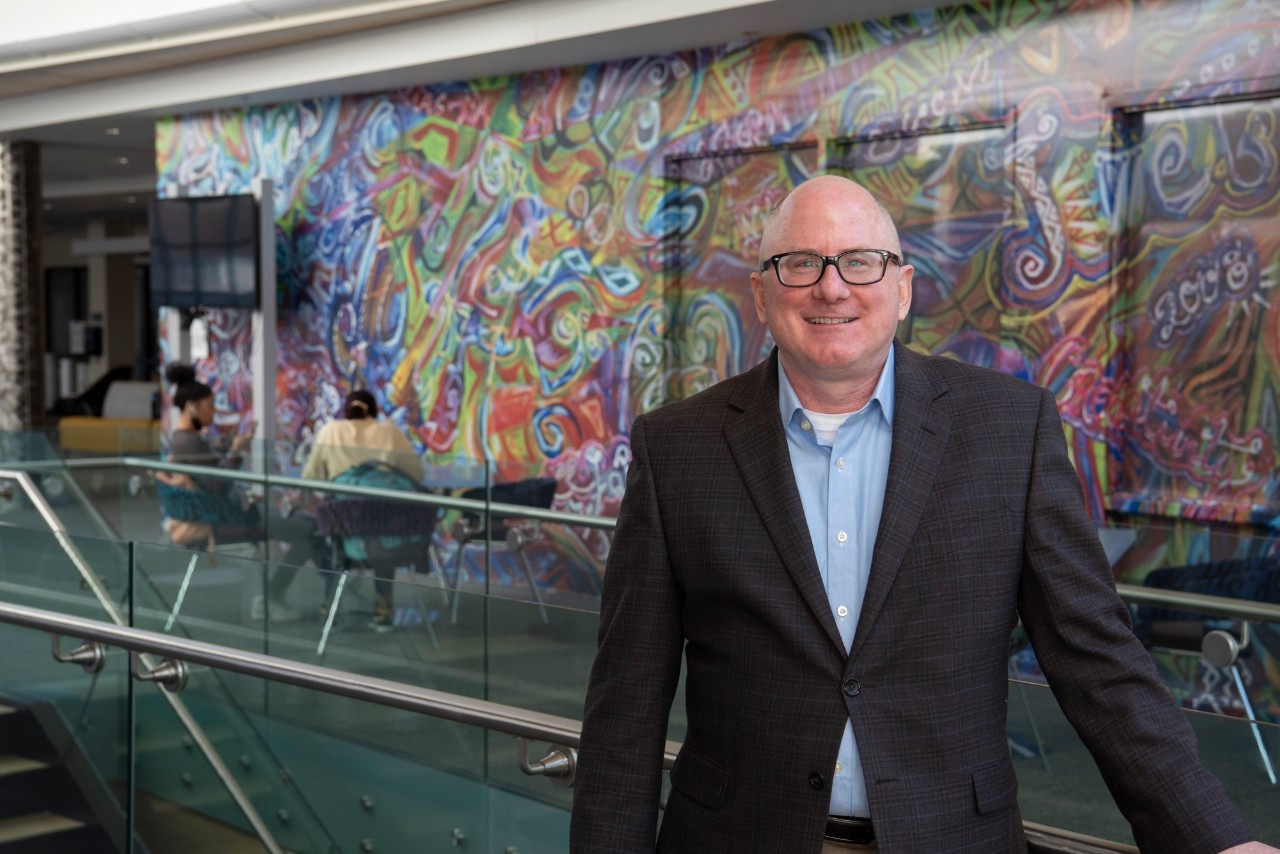Provost Dr. Matt Cecil is looking toward a post-COVID future.
Dr. Matt Cecil began his tenure as provost and executive vice president for academic affairs on July 1, 2021, just weeks before the COVID-19 Delta variant took hold of the region, the country and the world.
Since arriving in Highland Heights, Cecil worked closely with other Northern Kentucky University officials to come up with a plan for the fall 2021 semester regarding masks, vaccinations and how to approach in-person learning. In addition to helping craft those plans, one of the top priorities for the provost is tracking the virus and communicating plans to the NKU community.
“What it is is an opportunity to show how much people care for students,” Cecil says. “I can say the campus has stepped up. Here at NKU, folks continue to step every day to help our students progress toward those goals and it’s not easy. We’ve got our own things to worry about.”
While NKU began increasing online courses before the pandemic, virtual learning took off during the pandemic. Coming into the fall, the university weighed several decisions for students on campus, including whether to require masks indoors. Those issues posed challenges to the new provost, who was forced to make difficult decisions just weeks into his term at NKU.
“A lot of people got sick, and it all happened very quickly,” Cecil says. “But people are really resilient and showed their best. And our students appreciate it. They tell me that.”
Not many people get excited about challenges, but that’s exactly what led Cecil to NKU. He came to NKU from Minnesota State University, Mankato, where he served as interim provost. While Cecil could have waited for a possible removal of the “interim” tag at Mankato, he wanted to challenge himself with a new opportunity at a similar yet different institution.
“The profiles of the institutions are very similar,” Cecil says. “But the opportunities [at NKU] are even more tremendous. NKU is in a setting that allows us to have more of an impact on the region.”
While at MSU Mankato, Cecil led the academic affairs office through the beginning of the pandemic. Now, he is looking forward to a post-pandemic world. NKU has begun working to become a hybrid university, expanding online classes for students who may not be able to take classes on campus.
“We need to look at the audiences that we provide services for and ask ourselves, ‘What is the best way to provide services for that audience?’” Cecil says. “We want to be intentional about it. Not just say we’re going to do online courses or we’re just going to do in-person courses. We’re going to do both.”
Cecil has learned a lot about what the university is working on to build on its student success initiatives, including the first-year Student Success Hub. That hub will provide centralized advising and resources for first-year students. The provost says in order to achieve those goals, NKU must address some of the non-COVID challenges it faces.
“One of those big challenges is our on-campus enrollment, which has gone down for five years,” Cecil says. “The Student Success Hub will, I believe, help turn that around.”
Another big challenge NKU and many other universities face are opportunity gaps. Those gaps are the retention and graduation rates between the university’s white students and students of color. While NKU has worked hard to close those gaps, COVID undid a lot of the progress made.The gap expanded to a nine-to-10 percent gap between NKU’s white students and underrepresented minority students.
The work toward achieving those goals of boosting enrollment and closing opportunity gaps is led by the Success by Design strategic framework. The provost is working with Moon Shot for Equity, a partnership between NKU and three area colleges and universities aimed at ending the equity gaps.With aid from the education firm EAB, the goal is to help underrepresented students of color and other historically underserved populations graduate at the same rate as white students.
“Our job is to help improve the quality of life in our region,” Cecil says. “If we don’t address those opportunity gaps, if we don’t help a lot more students of color graduate from our campuses—not just our campus but other campuses around the region—the reality of the situation is that the standard of living will not go up.”
The challenges are great for new provost Cecil, but he is determined to take those lemons and turn them into lemonade for the betterment of the university, but most importantly, the students.
“The students really do care,” Cecil says. “And you feel it on a campus like this. Not every campus has that feel of putting students first and doing what it takes. One day at a time, one student at a time, to get them across the line.”



